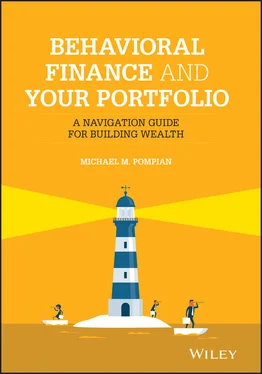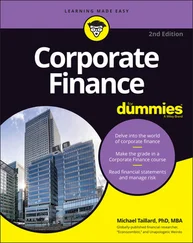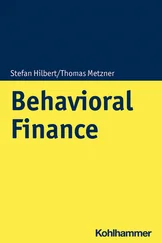Validity exists in both the efficient market and the anomalous market theories. In reality, markets are neither perfectly efficient nor completely anomalous. Market efficiency is not black or white but rather, varies by degrees of gray, depending on the market in question. In markets exhibiting substantial inefficiency, savvy investors can strive to outperform less savvy investors. Many believe that large-capitalization stocks, such as GE and Microsoft, tend to be very informative and efficient stocks but that small-capitalization stocks and international stocks are less efficient, creating opportunities for outperformance. Real estate, while traditionally an inefficient market, has become more transparent and, there are REIT index products for gaining direct market exposure. Finally, the venture capital market, lacking fluid and continuous prices, is considered to be less efficient due to information asymmetries between players.
Rational Economic Man versus Behaviorally Biased Man
Stemming from neoclassical economics, Homo economicus is a simple model of human economic behavior, which assumes that principles of perfect self-interest, perfect rationality, and perfect information govern economic decisions by individuals. Like the efficient market hypothesis, Homo economicus is a tenet that economists uphold with varying degrees of stringency. Some have adopted it in a semi-strong form; this version does not see rational economic behavior as perfectly predominant but still assumes an abnormally high occurrence of rational economic traits. Other economists support a weak form of Homo economicus, in which the corresponding traits exist but are not strong. All of these versions share the core assumption that humans are “rational maximizers” who are purely self-interested and make perfectly rational economic decisions. Economists like to use the concept of the rational economic man for two primary reasons:
1 Homo economicus makes economic analysis relatively simple. Naturally, one might question how useful such a simple model can be.
2 Homo economicus allows economists to quantify their findings, making their work more elegant and easier to digest. If humans are perfectly rational, possessing perfect information and perfect self-interest, then perhaps their behavior can be quantified.
Most criticisms of Homo economicus proceed by challenging the bases for these three underlying assumptions—perfect rationality, perfect self-interest, and perfect information.
1 Perfect rationality. When humans are rational, they have the ability to reason and to make beneficial judgments. However, rationality is not the sole driver of human behavior. In fact, it may not even be the primary driver, as many psychologists believe that the human intellect is actually subservient to human emotion. They contend, therefore, that human behavior is less the product of logic than of subjective impulses, such as fear, love, hate, pleasure, and pain. Humans use their intellect only to achieve or to avoid these emotional outcomes.
2 Perfect self-interest. Many studies have shown that people are not perfectly self-interested. If they were, philanthropy would not exist. Religions prizing selflessness, sacrifice, and kindness to strangers would also be unlikely to prevail as they have over centuries. Perfect self-interest would preclude people from performing such unselfish deeds as volunteering, helping the needy, or serving in the military. It would also rule out self-destructive behavior, such as suicide, alcoholism, and substance abuse.
3 Perfect information. Some people may possess perfect or near-perfect information on certain subjects; a doctor or a dentist, one would hope, is impeccably versed in his or her field. It is impossible, however, for every person to enjoy perfect knowledge of every subject. In the world of investing, there is nearly an infinite amount to know and learn; and even the most successful investors don't master all disciplines.
Many economic decisions are made in the absence of perfect information. For instance, some economic theories assume that people adjust their buying habits based on the Federal Reserve's monetary policy. Naturally, some people know exactly where to find the Fed data, how to interpret it, and how to apply it; but many people don't know or care who or what the Federal Reserve is. Considering that this inefficiency affects millions of people, the idea that all financial actors possess perfect information becomes implausible.
Again, as with market efficiency, human rationality rarely manifests in black or white absolutes. It is better modeled across a spectrum of gray. People are neither perfectly rational nor perfectly irrational; they possess diverse combinations of rational and irrational characteristics, and benefit from different degrees of enlightenment with respect to different issues.
1 1 https://www.dalbar.com/Portals/dalbar/Cache/News/PressReleases/QAIBPressRelease_2019.pdf
2 2Robert Shiller, Narrative Economics: How Stories Go Viral and Drive Major Economic Events (Princeton University Press 2019)
3 3Owen A. Lamont and Richard H. Thaler, “Can the Market Add and Subtract? Mispricing in Tech Stock Carve-Outs,” Journal of Political Economy 111(2) (2003): 227–268.
4 4 www.amazon.com
5 5This paper can be found on Meir Statman's home page at http://lsb.scu.edu/finance/faculty/Statman/Default.htm
6 6Meir Statman, What Investors Really Want: Discover What Drives Investor Behavior and Make Smarter Financial Decisions (New York: McGraw Hill, 2011).
7 7Nobel Prize web site: http://nobelprize.org/economics/laureates/2002/
8 8Jon E. Hilsenrath, “Belief in Efficient Valuation Yields Ground to Role of Irrational Investors: Mr. Thaler Takes on Mr. Fama,” Wall Street Journal, October 18, 2004.
9 9Jon E. Hilsenrath, “Belief in Efficient Valuation Yields Ground to Role of Irrational Investors: Mr. Thaler Takes on Mr. Fama,” Wall Street Journal, October 18, 2004.
10 10Meir Statman, “Behavioral Finance: Past Battles and Future Engagements,” Financial Analysts Journal 55(6) (November/December 1999): 18–27.
11 11Eugene Fama and Kenneth French, “The Cross-Section of Expected Stock Returns,” Journal of Finance 47(2) (1992): 427–465.
12 12Dream Value Management web site: www.dreman.com/
13 13James O'Shaughnessy, What Works on Wall Street (New York: McGraw-Hill Professional, 2005).
14 14Dream Value Management web site: www.dreman.com/
15 15Robert Haugen and Philippe Jorion, “The January Effect: Still There after All These Years,” Financial Analysts Journal 52(1) (January–February 1996): 27–31.
16 16Russell Investment Group web site: www.russell.com/us/education_center/
17 17Chris R. Hensel and William T. Ziemba, “Investment Results from Exploiting Turn-of-the-Month Effects,” Journal of Portfolio Management 22(3) (Spring 1996): 17–23.
2 Introduction to Behavioral Biases
Nothing in life is quite as important as you think it is while you're thinking about it .
— Daniel Kahneman
In order to create your best portfolio, it is essential that you obtain an understanding of the irrational behaviors that you have—or be able to recognize the biases of others that may be involved in your investment decision-making process. Numerous research studies have shown that when people are faced with complex decision-making problems that demand substantial time and cognitive decision-making requirements, they have difficulty devising a rational approach to developing and analyzing a proper course of action. This problem is exacerbated by the fact that many consumers need to contend with a potential overload of information to process. Have you walked down the shampoo aisle lately? Way too many choices—how do you pick? And this is one of the easier decisions we face! When it comes to our money, it becomes even more complicated. For more meaningful decisions, people don't systematically describe problems, record necessary data, and/or synthesize information to create rules for making decisions, which is really the best way to make complex decisions. Instead, people usually follow a more subjective path of reasoning to determine a course of action consistent with their desired outcome or general preferences.
Читать дальше












